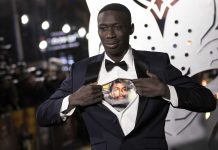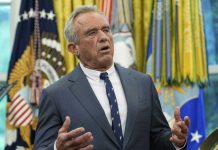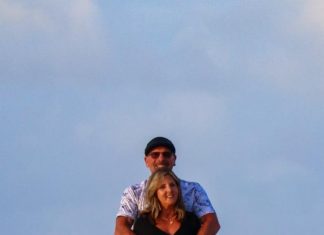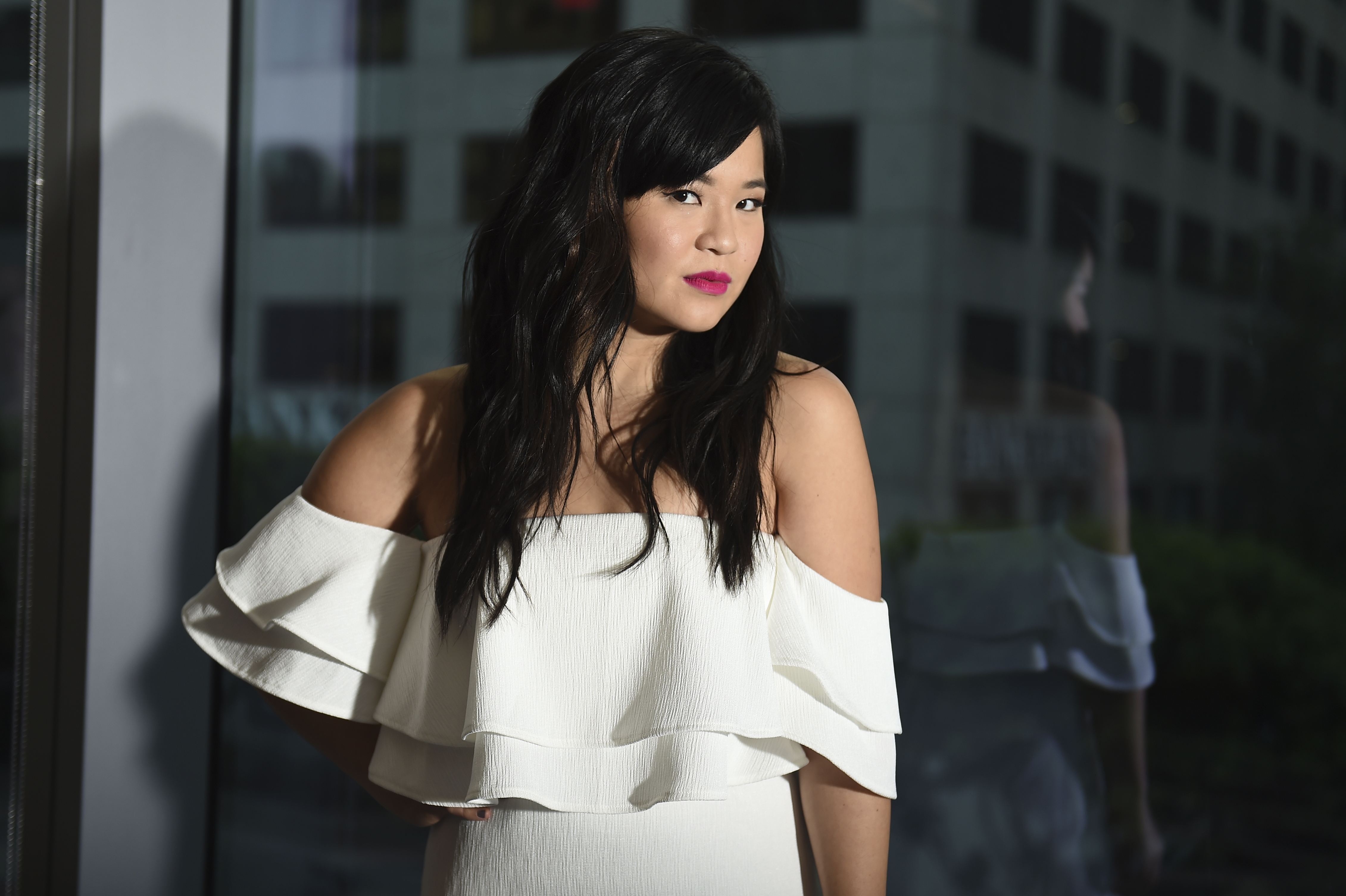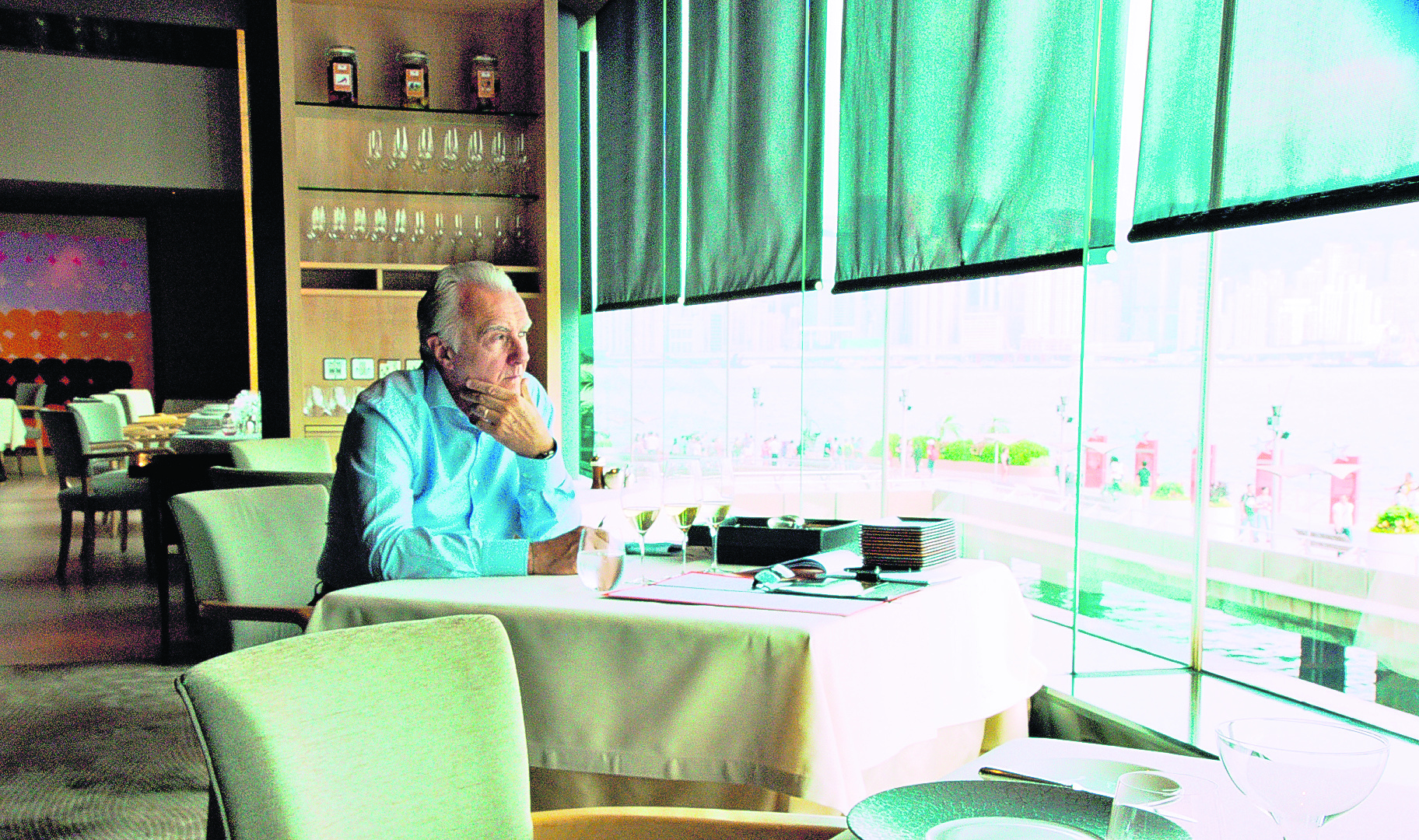
By JOCELYN NOVECK
Associated Press
NEW YORK (AP) — In the new documentary “The Quest of Alain Ducasse,” the esteemed French chef steps off a small plane in the middle of the Gobi desert in Mongolia. As he stands pondering the vast emptiness, a motorcycle suddenly appears, as if out of nowhere, carrying two men. The bemused chef chuckles: “There are customers everywhere.” For Ducasse, 61, that seems to be a fundamental truth — and a driving force. The man oversees a veritable empire, with 27 restaurants across the globe, and 19 Michelin stars among them.
From his first three-star triumph as a young upstart at the Louis XV in Monaco, to his haute-healthy, no-meat Paris eatery at the Plaza Athenee, to his recently opened restaurant at the opulent Versailles palace, where a special royal dinner costs 1,000 euros, he seems on a nonstop mission to expand. In September, he’ll open a new restaurant on an electric boat floating along the Seine. There was a time when Ducasse, who grew up on a farm in southwestern France, spent most of his hours behind the stove. Now, he seems to spend most of them in the air, crisscrossing the globe, tasting new menus, seeking new flavors.
In an interview at a New York gathering marking the release of the film, he politely deflected a question about how many frequent flyer miles he’s amassed. But he did remark that he’d recently traveled for 20 hours to the mountains of Peru, just to taste a cup of coffee.
“It was very good coffee,” he noted, with typically deadpan delivery. His constant travels, as portrayed by director Gilles de Maistre, have a very different goal than, say, those of the late Anthony Bourdain, who sought to explain cultures to his viewers through food. For Ducasse, the goal is to gain inspiration for his restaurants. He gets much of it from Japan. “It’s my only quest,” he says in the film, sampling a heavenly slice of fresh tuna in Kyoto, “tasting things that I haven’t tried yet.”
Foodies — especially those with an affinity for haute cuisine with a healthy twist — will no doubt find much to enjoy in the documentary, which follows Ducasse around the world for about two years leading up to the opening of Ore, his Versailles eatery (it’s in select theaters and also on video on demand). Director de Maistre says it took him quite some time to convince Ducasse to do the film. “After a while, he got used to me,” he says. His goal, he adds, was simple: “I wanted to see the world through his eyes, his vision of gastronomy.”
Critics have noted that the film does suffer, though, from narration that occasionally sounds adoring — even worshipful.
Some viewers might also have wanted more of a look at Ducasse the man, away from his work. We never see his family, or what he does in his spare time — if he has any. There is, however, one poignant personal scene when the chef reflects upon the most harrowing moment of his life, a 1984 small plane crash in the Alps that killed several colleagues. Only Ducasse survived. “It wasn’t my time,” he says. The film illustrates Ducasse’s exalted position in France — we see him hobnobbing with more than one French president — but we also see him in jeans in the garden, picking raspberries or tasting a raw zucchini. Despite his poker face, he can be funny: A good meal, he tells a gardener, depends on who you’re with. “If you’re not in good company, it’s better to be alone with a good vegetable.”
We see a man who can lose his patience, for example when he sees a staffer serve pre-poured champagne, rather than pouring in front of the guest — he admits that sends him “into hysterics.” And we see someone who’s clearly competitive: after inaugurating a high-end cream puff kiosk at a Tokyo rail station, he buys a competitor’s cream puff elsewhere for comparison, tasting it back in his hotel room. According to the film, Ducasse “is said to have a perfect palate, as others have perfect pitch.” Ducasse himself is much more prosaic about his gifts. Being a great chef is, he says, “95 percent hard work and five percent talent.”
We also see a socially conscious side of Ducasse, cooking a meal for locals in Brazil from unused leftovers at the Olympic village, and visiting the cooking school he’s created for underprivileged youth in the Philippines.
Perhaps the most entertaining behind-the-scenes food moment comes at the sturgeon farm near Shanghai where Ducasse gets his caviar. If you’ve never seen a sturgeon the size of a minivan being sliced open to display its glistening eggs, it’s worth your while. With his elevated status in French cuisine, you’d think Ducasse might look down on the celebrity chef phenomenon, with reality shows and TV cooking competitions. He says he doesn’t. “It’s good for our industry,” he said at the recent New York gathering. Standing next to him, one can’t help but pose that question you’d want to ask any celebrated chef: what he eats at home.
“Maybe vegetables from the garden,” he replied. “Low protein, low sugar. No wine.” It fits in with his all-around philosophy, he said: “We must eat better, and less.”







